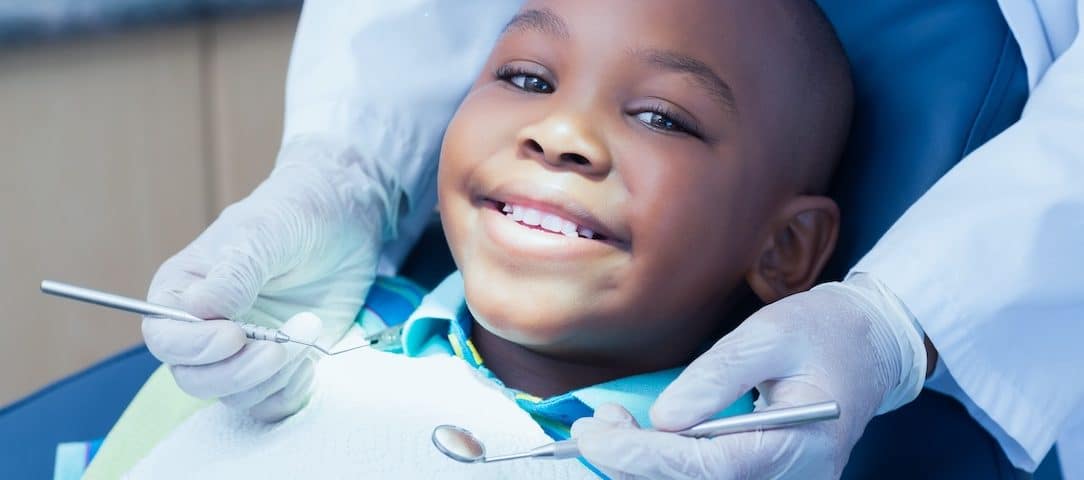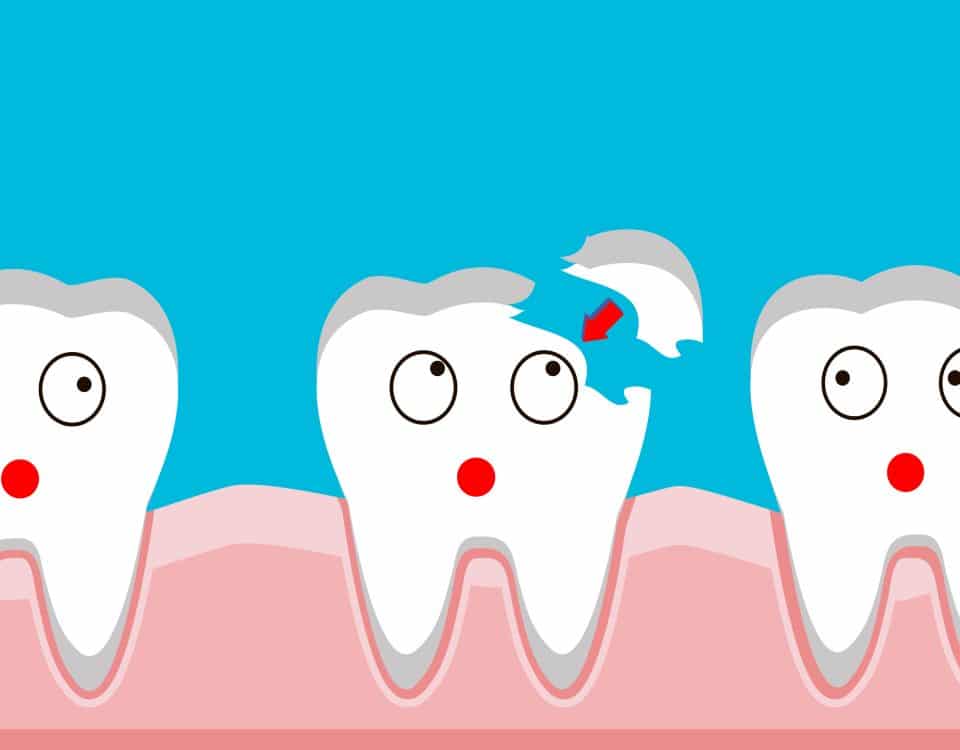A Timeline of How Your Child’s Mouth Develops

Why Adults Avoid the Dentist
August 13, 2020
Can a Root Canal Save Your Tooth?
August 28, 2020Every child develops at a different rate, but usually all of the same things happen in due time. If you’re a new or expecting parent, here’s a timeline of how your child’s mouth develops and how you can help them maintain a healthy mouth into their adulthood.
The Early Stages
No two children will get the same teeth in at the exact same time, though there are some average times that certain teeth do come in. For most babies, the first teeth to come in are the lower front teeth, and most babies have teeth begin erupting around six months old. The American Academy of Pediatrics explains the average timeline primary teeth begin showing up:
Upper teeth
- Central incisor (front teeth): 8-12 months old
- Lateral incisor: 9-13 months old
- Canine (cuspid): 16-22 months old
- First molar: 13-19 months old
- Second molar: 25-33 months old
Lower teeth
- Second molar: 23-31 months old
- First molar: 14-18 months old
- Canine (cuspid): 17-23 months old
- Lateral incisor: 10-16 months old
- Central incisor: 6-10 months old
What Makes Up the Teeth?
Each tooth is made up of four different parts: the pulp, dentin, enamel, and cementum. The pulp is the innermost portion of the tooth and is made up of tissue, nerves, and blood vessels, all nourish the tooth. Dentin is what surrounds the pulp. It is a hard, yellow, substance and it makes up most of the tooth. The enamel is the hardest tissue in the body, and covers the dentin. This is what protects the teeth from the pressure of chewing, bacteria, and sensitivity. The outside of the root, under the gum line, is a layer of cementum. This is what holds the tooth in place within the jawbone.
Our teeth are what allow us to chew our food and talk with loved ones. It’s important that we care for them, and that starts from a very early age.
How to Set Your Child’s Teeth Up for Success
Taking care of your child’s teeth as soon as they come in is one of the ways you can make sure they have healthy teeth as adults one day. If you’re reading this, you’re already trying to prepare yourself with how to do that, which is a great first step! Here are some tips you can follow to make sure that your children have the healthiest smile possible:
See the dentist regularly
Your child should have their first dental visit when they get their first tooth, or by the time they turn one, whichever is sooner. Seeing your dentist regularly (every six months) is how you can catch problems early, keep the teeth clean and the mouth healthy. This will also help their teeth be well-equipped and prepared for orthodontic work when they’re older if that’s something they’ll need.
Help them brush their teeth twice a day
While they’re young, you should brush their teeth for them twice a day, two minutes each time. When they’re old enough to hold the brush and try on their own, watch them through the process and help them reach the places they can’t. Brushing twice a day helps keep plaque at bay, which can prevent the development of bad bacteria that can cause cavities and tooth decay.
Protect their mouths
If they’re going to play sports, get them used to a mouthguard at an early age. A mouthguard protects the teeth in case of a hard hit to the head, whether by a ball or an unforeseen elbow. Additionally, don’t let your children walk around with objects in their mouth, like a pen. Chewing on hard objects like that is not good for the integrity of the teeth.
Stop pacifier or thumb-sucking early on
Ideally, your child shouldn’t use a pacifier or suck their thumb by the age of two. Your dentist can help you with a weaning strategy to help them break the habit so it won’t affect how the teeth come in.
Feed them a healthy diet
We’re not saying have no sweets ever, but watching what they eat can help make sure they protect their teeth. Try to limit the amount of sugary juice, snacks, and candy that could have harmful effects on their teeth.
Make an Appointment with Dr. Varley and Stonebrook Family Dental
Dr. Varley believes that positive dental experiences during childhood are the foundation of a lifetime of good oral health habits. Our friendly and gentle team understands that many children feel anxious about dental visits, and we always take the time to make sure our younger patients feel safe in our care. We offer prizes, cartoons, kid-friendly movies, and free nitrous oxide (laughing gas) for anxious children. Call today to make an appointment for your kiddo: (303)-872-7907.



